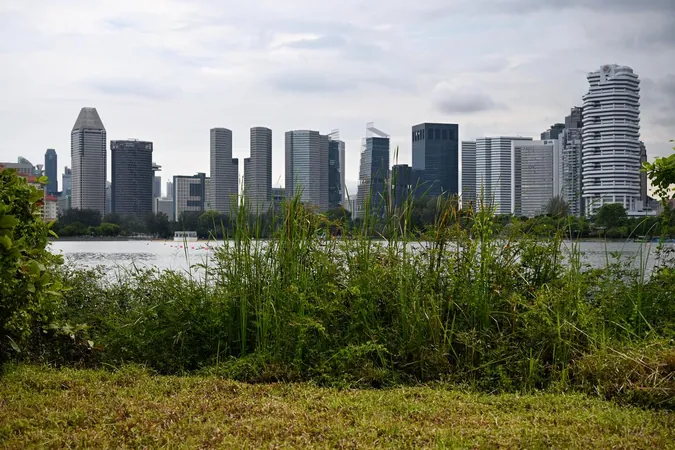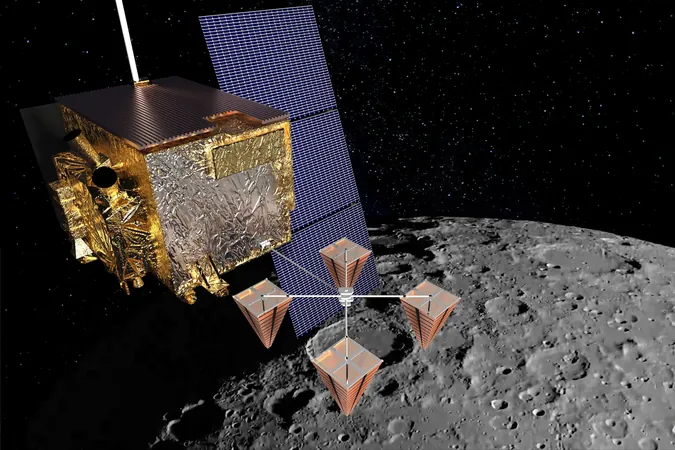
Singapore Forms Groundbreaking Carbon Trading Pact with Peru – What It Means for the Planet!
2025-04-02
Author: Li
Singapore Forms Groundbreaking Carbon Trading Pact with Peru
In a significant environmental breakthrough, Singapore has finalized a carbon trading agreement with Peru as of April 1, marking a pivotal move towards sustainable development and international climate collaboration. This milestone makes Singapore the first Southeast Asian nation to ink a carbon trading deal with a Latin American country, showcasing its commitment to combating climate change.
This new agreement is Singapore's fourth in its effort to purchase carbon credits, complementing previously established pacts with Bhutan, Ghana, and Papua New Guinea. Carbon credits play a crucial role under the Paris Agreement, allowing countries to purchase credits from other nations to meet domestic climate targets. Each carbon credit equates to one tonne of carbon dioxide either removed from the atmosphere or prevented from being emitted, thus promoting initiatives like forest conservation or clean energy solutions.
Singapore's intent to utilize these carbon credits to achieve its climate objectives was made clear, although the nation has yet to make its first purchase. The agreement with Peru stipulates that carbon credits can only be bought from countries engaged in bilateral agreements with Singapore. Notably, companies liable to pay carbon taxes can offset up to 5% of their taxable emissions via credits acquired from these partner nations.
The virtual signing ceremony was conducted by Singapore’s Minister for Sustainability and the Environment, Grace Fu, and Juan Carlos Castro Vargas, Peru’s Environment Minister. Castro emphasized the importance of Peru's rich biodiversity, including vast Amazon and Andean forests, which significantly contribute to global climate stability. “This partnership signifies our mutual commitment to cultivating high-integrity carbon markets, aiding our environmental goals and local communities alike,” he stated.
As part of the agreement, Singapore has pledged to allocate 5% of revenue from purchased carbon credits to assist Peru in combating climate change impacts. This commitment mirrors similar arrangements in its agreement with Bhutan, focusing on heat management and resilient agriculture.
There are primarily two types of carbon credits—nature-based and technological. Nature-based credits arise from projects like forest restoration, while technological credits stem from advancements, such as improved cookstove technology. The urgency comes as Singapore prepares to procure its first set of nature-based offsets to fulfill its climate goals for 2030.
In September 2024, Singapore's authorities called for developers to propose nature-centric projects capable of producing a minimum of 500,000 carbon credits. The response was significant, with 17 submissions received, although it's unclear if any proposals linked to Peruvian projects were submitted.
Minister Grace Fu noted, “With Peru being a close partner, this agreement enhances our collaboration and creates avenues for nurturing a carbon market that benefits both nations.” Current negotiations are ongoing with over 15 additional countries, including Malaysia, Cambodia, and Colombia, aiming to expand Singapore’s carbon-trading partnerships.
Promising potential projects resulting from the Peru-Singapore pact may include rainforest restoration and watershed conservation efforts. These initiatives are particularly timely as Peru seeks to tackle pressing water scarcity and climate resilience challenges.
Dr. Kim Jeong Won, a senior research fellow at the National University of Singapore’s Energy Studies Institute, highlighted the historical context of Peru’s prior experience with carbon projects under the Kyoto Protocol. She pointed out, however, that successful nature-based initiatives require rigorous environmental and social safeguards to prevent any negative impacts on ecosystems or local communities.
Despite the agreement's optimism, concerns remain about the timing of carbon credit issuances, with Singapore aiming to offset around 2.51 million tonnes of emissions annually over this decade. With Singapore's total greenhouse gas emissions hitting 58.59 million tonnes in 2022, this goal is ambitious yet necessary.
As noted by climate policy expert Melissa Low, Peru has not yet established its 2035 climate targets, complicating its ability to sell international carbon credits. There lies a pivotal question: will Peru prioritize its domestic needs over international sales of carbon credits to meet its climate goals?
This groundbreaking agreement illustrates a commitment to international cooperation on climate change, reinforcing Singapore's role as a proactive player in the global carbon market. With both nations focused on high-integrity projects, the potential to generate meaningful environmental benefits is significant and could serve as a model for future partnerships worldwide.





 Brasil (PT)
Brasil (PT)
 Canada (EN)
Canada (EN)
 Chile (ES)
Chile (ES)
 Česko (CS)
Česko (CS)
 대한민국 (KO)
대한민국 (KO)
 España (ES)
España (ES)
 France (FR)
France (FR)
 Hong Kong (EN)
Hong Kong (EN)
 Italia (IT)
Italia (IT)
 日本 (JA)
日本 (JA)
 Magyarország (HU)
Magyarország (HU)
 Norge (NO)
Norge (NO)
 Polska (PL)
Polska (PL)
 Schweiz (DE)
Schweiz (DE)
 Singapore (EN)
Singapore (EN)
 Sverige (SV)
Sverige (SV)
 Suomi (FI)
Suomi (FI)
 Türkiye (TR)
Türkiye (TR)
 الإمارات العربية المتحدة (AR)
الإمارات العربية المتحدة (AR)